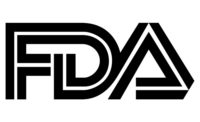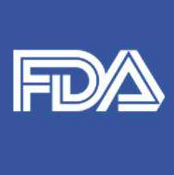Food Safety, FDA Hit Hard Under Government Shutdown

It’s Day 4 of the partial shutdown of the U.S. government, which resulted from Congress’ failure to enact the annual appropriations needed to keep the government in business. Food Safety Magazine spoke with Edgar Asebey-Birkholm, partner-in-charge of the FDA Practice Group at the Roetzel & Andress law firm, to get a big-picture perspective on how the shutdown will likely affect food safety.
Asebey-Birkholm said that under the Department of Health and Human Services’ (HHS) “Contingency Staffing Plan for Operations in the Absence of Enacted Annual Appropriations”, which appears to have been implemented already, some 45% of the Food and Drug Administration’s (FDA) almost 15,000 staff members are being furloughed. “No doubt the repercussions will be vast and far-reaching for FDA-regulated companies,” he said.
Whereas the FDA divisions that deal with human drugs, animal drugs and tobacco will continue to be supported (temporarily) by user fees that FDA collects for services related to certain activities in these areas, no such user fees exist with regard to foods, Asebey-Birkholm remarked. Accordingly, he said, functions such as food facility inspections, inspection of imported foods, follow-up inspections after implementation of corrective action plans (CAPs) and review of petitions for removal from Import Alert will most likely suffer due to the government shutdown.
Specifically, Asebey-Birkholm explained:
- In the absence of FDA inspection of imported foods, determinations of whether a given imported product is accepted into U.S. commerce or held at the point of entry will be left to U.S. Customs & Border Protection (CBP) officials, who will continue working until their contingency funding dries up. Typically, any food item that is flagged as questionable by CBP would be inspected by FDA officials and either released, detained, or destroyed, depending on FDA’s determination of the product’s safety and quality. Under the current circumstances, there is a somewhat greater potential for imported product that does not meet U.S. safety or wholesomeness standards to enter the supply chain, and for imported product that may meet U.S. standards but needs some labeling or packaging changes — to be held at the docks until it expires and must be destroyed.
- Companies that have received a Form 483 citation from FDA and have ceased operations until a Corrective Action Plan (CAP) can be approved by FDA will not have access to FDA personnel who could determine whether the firm has responded effectively and sufficiently to the 483 citation it received. Whether a given company can continue production or not depends on the nature of the deficiencies for which it was cited and what agreement it may have negotiated with FDA officials at headquarters prior to ceasing operations. Again, the bottom line is that some companies will suffer unnecessary business interruptions, while others could potentially be marketing unsafe product.
- Companies that are subject to an Import Alert face a similar situation. If the terms of a given Import Alert allow Company X to continue to import a particular product, but entries of that product require laboratory testing prior to release by FDA and U.S. Customs and Border Protection (CBP), Asebey-Birkholm said, that there will be no FDA officials to review the testing information. This means that food that would have otherwise entered the U.S. because it tested clean will most likely not have to be unnecessarily re-exported or destroyed. It is also hard to imagine that the detection of contaminated entries of food would get more efficient under the reduced inspection capabilities of FDA during the government shutdown.
- The Department of Health and Human Services (HHS) has said that the FDA resources that remain available during the shutdown will be focused “as necessary for the protection of human life.” As food recalls are categorized into classes (I, II, and III) based on the level of potential risk to human health, Asebey-Birkholm said that Class I recalls will likely continue, but questioned whether FDA would be able to continue initiation of Class II and III recalls. For example, although yesterday was Day 3 of the shutdown, FDA notified the public that OnTime Distribution Inc. of Brooklyn, NY, was voluntarily recalling PRAN brand Spice Powder Turmeric “because it was found to contain high levels of lead that could cause health problems to consumers, particularly infants, small children, and pregnant women if consumed. Recent analysis of the product found that it contained lead levels as high as 28 and 42 parts per million (ppm).”
Asebey-Birkholm observed that when questions of funding for the FDA and USDA arise, some members of Congress have replied with the platitude, “Our food supply chain is the safest in the world,” while failing to acknowledge those federal agencies’ roles in making that assertion true.
“Most people don’t realize how fragile the food safety system is,” Asebey-Birkholm said. “It is a complex arrangement of checks and balances and when a critical safety valve is closed it has a profound impact on the rest of the system.”
He added, “This isn’t just a political fight in Washington, DC. Even if you just focus on food safety, the government shutdown is negatively affecting thousands of federal employees; thousands of producers, processors, importers, exporters, and other businesses — large, medium, and small — that support the food industry; and 300 million consumers who rely on our food safety system to keep them safe.”
Needless to say, there has also been a flurry of stories by major media outlets. Useful excerpts follow.
An Oct. 3 article on the Christian Science Monitor’s website said ominously, “Experts warn that even a short government shutdown could be a lasting problem for the already underfunded FDA.”
Because the shutdown has resulted in so many FDA employees being furloughed, “91 percent of seafood that Americans consume, which the United States imports, is not being inspected, currently. The same goes for the nearly 50 percent of fruits and 20 percent of vegetables consumed in the U.S. but imported from abroad. And though many of inspections here in the U.S. are still being carried out through state and local agencies, reporting any problems encountered at the federal level could be difficult,” the article stated.
Also focusing on the FDA, an Oct. 1 Huffington Post story took a look at how many inspections FDA employees perform each year and what it means when a food facility fails an inspection:
“In fiscal 2011, the FDA inspected about 20,000 food facilities for compliance with safety regulations. (The 2011 Food Safety Modernization Act actually requires U.S. inspectors to check almost 35,000 facilities a year, but funding has not been provided to meet that mandate.) The number of past inspections suggests FDA officials normally inspect about 80 facilities per business day. So, for every day the government doesn't work, approximately 80 food facilities will go uninspected. If the shutdown lasts until Oct. 17, 960 facilities may go without U.S. inspections.
“To get a sense of what that means, let's take a look at 23 food safety warning letters the FDA sent to food facilities that failed inspections. They reveal gnarly conditions at major food manufacturing facilities, including cooking implements covered in mold and stored in brown, soiled water at a Detroit donut factory; high levels of illegal drug residues in veal from a farm in upstate New York; and flies buzzing around a tortilla factory in Hagerstown, MD.
“The warning letters give the facilities in question a chance to correct sanitation mistakes before they cause serious outbreaks of foodborne illness. If the commands in a warning letter are not obeyed, the FDA has the authority to punish, or even shutter, the facility in question.
“These warning letters are sent to just a small fraction of all facilities that are inspected, and not all of these facilities have infractions that lead directly to illness. That means it's impossible to say whether cancelled food safety inspections will directly lead to food consumers getting sick.“
Turning to the Centers for Disease Control and Prevention (CDC), National Public Radio’s “All Things Considered” program on Oct. 3 featured a piece entitled “CDC: Shutdown Strains Foodborne Illness Tracking.” The story discussed how the team that oversees the CDC's PulseNet foodborne illness tracking database has been cut from eight people to three as a result of the shutdown. This team identifies clusters of sickness linked to potentially dangerous strains of pathogens such as E. coli or salmonella.
Reporter Allison Aubrey asked Chris Braden, director of the CDC’s Division of Foodborne, Waterborne and Environmental Diseases, if he was worried about keeping up with the 30-some clusters of foodborne illnesses that CDC is tracking throughout the country.
"We are focusing on those areas that we have identified at greatest risk, but it does concern me that we could miss something," Braden replied. He said the team will continue to monitor clusters they already know about, but added that "if one of those clusters blows up into something big" such as a multistate outbreak, then "we would be beyond our capacity."
Looking for a reprint of this article?
From high-res PDFs to custom plaques, order your copy today!





